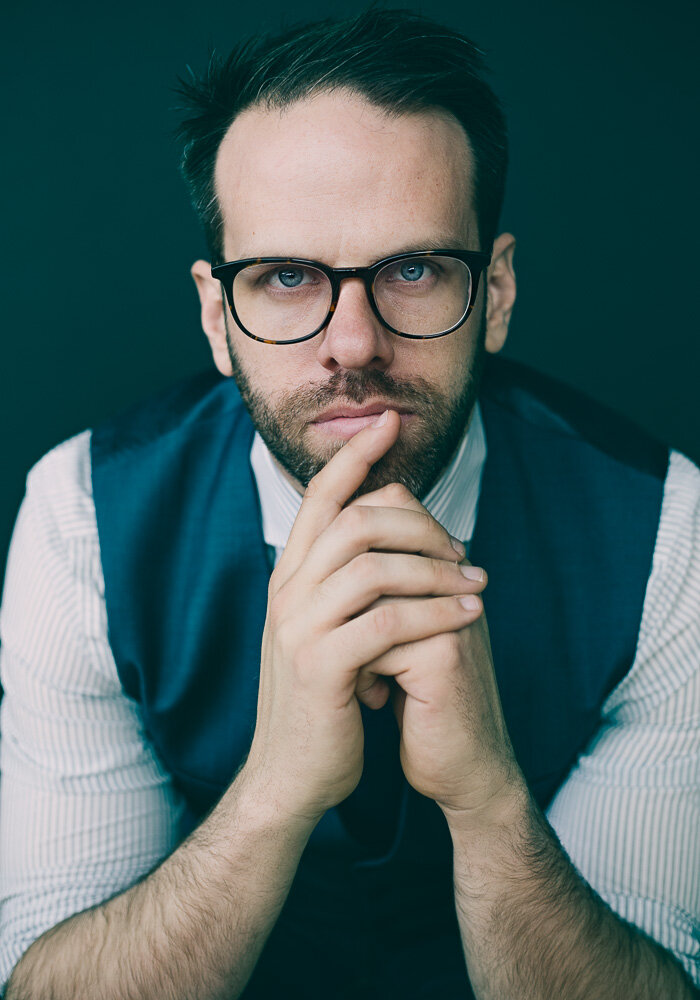When I first moved to Chicago I went in search of stage time. I knew that if I wanted to improve I would need to get onstage as often as possible.
Eventually I found a small bar near my apartment that did weekly cabaret shows. After a trial show there the host gave me an open invitation to perform whenever I wanted. So I started going there every single week.
Doing weekly shows allowed me to practice new things and learn how to be onstage in front of an often unruly audience. I learned how to handle being heckled and work with unwilling participants. I learned how to perform for a cynical audience and what to do when things went wrong. And, I learned how to make people care.
I remember one night I was trying a new stunt and no one would pay attention. The bar was a long, narrow space with a small stage way at the back near a few tables and chairs. There were probably 10-15 people scattered through the bar that night and everyone had been talking amongst themselves during all of the acts that had gone before me. By the time I went onstage it was clear that I would need to make a big change to my act in order to get control of the room, or I was going to bomb big time.
So, I changed gears. Without a second thought, I moved off the stage and into the house. I stood on a chair without a microphone, and shouted, “Can everyone see me okay?”
Suddenly everyone grew quiet and turned to look at me. I had momentarily gained their attention and knew that I could not relinquish it.
So, I resorted to another trick. I lowered my voice and began performing. You’d think that the best way to get an audience’s attention is to speak louder. It’s not. The best way is to lower your voice while maintaining your intensity. You want people to lean forward so they can hear you better and really pay attention. It’s counterintuitive, I know, but it really works.
“I’m going to show you something absolutely insane tonight, but I will not speak over you. I demand your attention and your respect for the next five and a half minutes.”
I slowly scanned the crowd as I excitedly whispered those words. You could have heard a pin drop in the room it was so quiet. Everyone was sitting in silent excitement, waiting to see what I would do next.
I proceeded to destroy that crowd for five minutes straight.
Without those weekly shows I wouldn’t have had the confidence to take control of the room. I wouldn’t have recognized the challenging crowd or the solution it required. I wouldn’t have known the power of silence or the “lowering my voice” trick. I needed weeks and weeks of stage time in that bar to understand how to work a room.
Before then I was lucky to have a show once a month. I’d do a show, fail miserably, then have to spend four weeks thinking about my mistakes. By the time I got the chance to perform again I had forgotten everything I’d learned and went back to making those mistakes all over again.
That’s how I feel now, doing in-person shows during the pandemic. I’ve only had five live events since March, with several weeks in between. Each show has had a different set of restrictions, a different demographic, and a different environment. The common denominator with each event is that every attendee (myself included) has worn a mask. When you do a show that relies heavily on audience reactions and feedback, the face coverings can make it quite difficult to know if it’s going well.
It’s part of the reason my virtual show has gotten so good. I’m doing several shows a week, even sometimes up to 4 in a day. Doing that many performances has allowed my script and material to get rock solid. I understand how to work the virtual elements of the show, connect with online participants, and keep momentum going during a show. And now I’m starting to do things that I do for my live shows after I perform them a hundred times, like adding in more jokes, building in extra surprises, and refining the finale. I can say, without question, that my virtual show is much, much better than my in-person socially distanced shows — all because I’ve had more time working on one than the other.
In many ways, doing in-person events right now is like being back in the early days when I was just starting out. I’m learning a bunch of things all at once and trying to retain it for long stretches of time between those events. Right now I’m just onstage taking my lumps. It’s a struggle and the progress is slow, but I’m not worried because I’ve been here before.
RELATED POSTS
About Mark Toland
Mark Toland is an award-winning mind reader and two-time TEDx Speaker. His mind blowing skills have been featured on NBC, ABC, FOX, CBS, NPR, WGN, Sirius XM, and more. Mark’s blog is a behind-the-scenes look at the life of a professional entertainer, full of creative thoughts for creative people. Sign up below so you’ll never miss a post.












